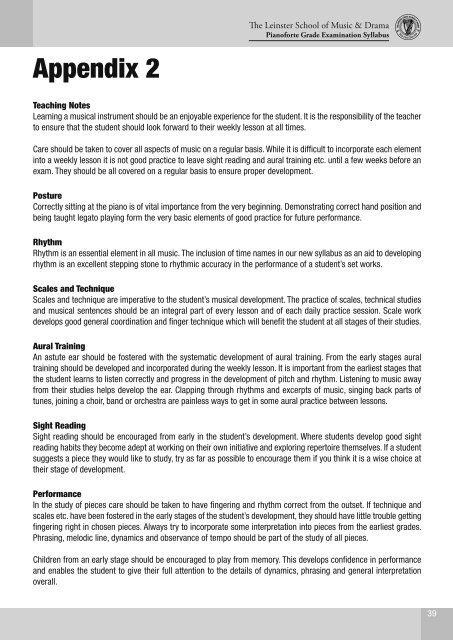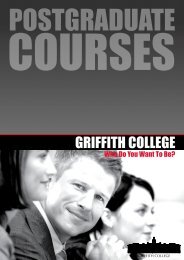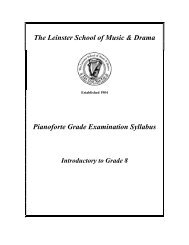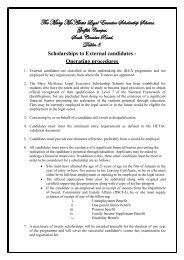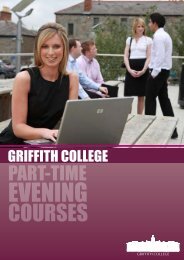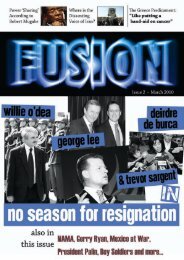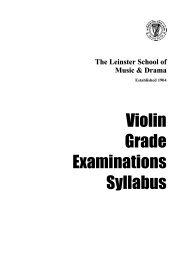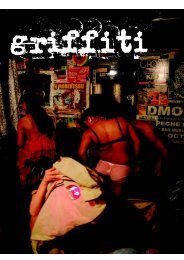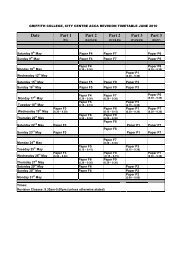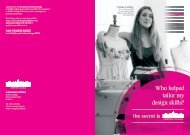The Leinster School of Music & Drama - Griffith College Dublin
The Leinster School of Music & Drama - Griffith College Dublin
The Leinster School of Music & Drama - Griffith College Dublin
- No tags were found...
Create successful ePaper yourself
Turn your PDF publications into a flip-book with our unique Google optimized e-Paper software.
<strong>The</strong> <strong>Leinster</strong> <strong>School</strong> <strong>of</strong> <strong>Music</strong> & <strong>Drama</strong>Pian<strong>of</strong>orte Grade Examination SyllabusAppendix 2Teaching NotesLearning a musical instrument should be an enjoyable experience for the student. It is the responsibility <strong>of</strong> the teacherto ensure that the student should look forward to their weekly lesson at all times.Care should be taken to cover all aspects <strong>of</strong> music on a regular basis. While it is difficult to incorporate each elementinto a weekly lesson it is not good practice to leave sight reading and aural training etc. until a few weeks before anexam. <strong>The</strong>y should be all covered on a regular basis to ensure proper development.PostureCorrectly sitting at the piano is <strong>of</strong> vital importance from the very beginning. Demonstrating correct hand position andbeing taught legato playing form the very basic elements <strong>of</strong> good practice for future performance.RhythmRhythm is an essential element in all music. <strong>The</strong> inclusion <strong>of</strong> time names in our new syllabus as an aid to developingrhythm is an excellent stepping stone to rhythmic accuracy in the performance <strong>of</strong> a student’s set works.Scales and TechniqueScales and technique are imperative to the student’s musical development. <strong>The</strong> practice <strong>of</strong> scales, technical studiesand musical sentences should be an integral part <strong>of</strong> every lesson and <strong>of</strong> each daily practice session. Scale workdevelops good general coordination and finger technique which will benefit the student at all stages <strong>of</strong> their studies.Aural TrainingAn astute ear should be fostered with the systematic development <strong>of</strong> aural training. From the early stages auraltraining should be developed and incorporated during the weekly lesson. It is important from the earliest stages thatthe student learns to listen correctly and progress in the development <strong>of</strong> pitch and rhythm. Listening to music awayfrom their studies helps develop the ear. Clapping through rhythms and excerpts <strong>of</strong> music, singing back parts <strong>of</strong>tunes, joining a choir, band or orchestra are painless ways to get in some aural practice between lessons.Sight ReadingSight reading should be encouraged from early in the student’s development. Where students develop good sightreading habits they become adept at working on their own initiative and exploring repertoire themselves. If a studentsuggests a piece they would like to study, try as far as possible to encourage them if you think it is a wise choice attheir stage <strong>of</strong> development.PerformanceIn the study <strong>of</strong> pieces care should be taken to have fingering and rhythm correct from the outset. If technique andscales etc. have been fostered in the early stages <strong>of</strong> the student’s development, they should have little trouble gettingfingering right in chosen pieces. Always try to incorporate some interpretation into pieces from the earliest grades.Phrasing, melodic line, dynamics and observance <strong>of</strong> tempo should be part <strong>of</strong> the study <strong>of</strong> all pieces.Children from an early stage should be encouraged to play from memory. This develops confidence in performanceand enables the student to give their full attention to the details <strong>of</strong> dynamics, phrasing and general interpretationoverall.39


